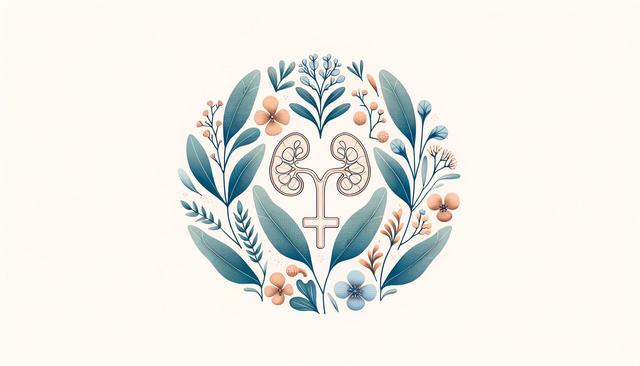Understanding CAH in Females
Congenital adrenal hyperplasia, commonly abbreviated as CAH, is a group of inherited disorders that affect the adrenal glands. These glands are responsible for producing essential hormones such as cortisol, aldosterone, and androgens. CAH in females can lead to distinctive symptoms due to the overproduction of androgens, or male hormones, which can interfere with typical female development. While CAH can affect all genders, its impact on women is often more visibly pronounced because of the hormonal imbalances affecting physical and reproductive traits. In particular, CAH symptoms in women can include ambiguous genitalia at birth, irregular menstrual cycles, excessive body hair, and infertility in some cases.
The severity of CAH can vary, and it is generally classified into classic and non-classic forms. Classic CAH is usually detected at birth or in early infancy, while non-classic CAH may not be diagnosed until puberty or later. This delayed recognition can complicate treatment and care, especially when symptoms overlap with other conditions like polycystic ovary syndrome (PCOS). The awareness of how CAH affects females differently plays a crucial role in ensuring accurate diagnosis and appropriate medical management.
Puberty and Reproductive Health in CAH
One of the critical areas where CAH in females presents unique challenges is during puberty. The hormonal changes that occur during this time can exacerbate the symptoms of CAH, leading to both physical and psychological impacts. Females with CAH may experience early onset of puberty, a condition known as precocious puberty, or delayed puberty, depending on the severity and management of the disorder. These disruptions are often linked to hormone levels and require close monitoring by healthcare professionals.
The influence of CAH on reproductive health is another significant concern. Women with CAH may face challenges such as:
- Irregular or absent menstrual periods
- Difficulty in conceiving due to hormonal imbalance
- Structural differences in reproductive anatomy
- Psychosocial stress related to gender identity and body image
Effective management often includes hormone replacement therapy, psychological support, and specialized care in CAH gynecology, which focuses on the unique reproductive and sexual health needs of women with this condition.
Diagnostic Strategies and Testing in Women
Timely and accurate diagnosis is essential for managing CAH in females. One of the primary tools used to confirm a diagnosis is the ACTH stimulation test in CAH cases. This test measures how well the adrenal glands respond to adrenocorticotropic hormone (ACTH) and helps determine the presence and severity of adrenal insufficiency. In addition to the ACTH stimulation test, CAH testing in women may involve genetic analysis, hormone level assessments, and imaging studies to evaluate adrenal and reproductive anatomy.
Early diagnosis is particularly important in non-classic CAH, where symptoms may be subtle or develop gradually. Without proper testing and diagnosis, these women may go years without understanding the cause of their symptoms. Key indicators that may prompt testing include:
- Unexplained irregular menstrual cycles
- Excessive facial or body hair (hirsutism)
- Severe acne or oily skin
- Fertility issues without a clear cause
Healthcare providers specializing in endocrinology and gynecology are typically involved in interpreting test results and crafting personalized treatment plans.
Long-Term Management and Support
Managing CAH in females is a lifelong process that requires a multidisciplinary approach. Hormone replacement therapy is often the cornerstone of treatment, aiming to replace deficient hormones and suppress excess androgen production. Regular monitoring and adjustments to medication are necessary to ensure optimal hormone levels and minimize side effects. In some cases, surgical intervention may be considered for anatomical concerns, especially in classic CAH diagnosed at birth.
Psychological support is also a crucial component of long-term care, as individuals with CAH may face emotional and social challenges related to their condition. Support groups, counseling, and patient education can help women cope with the complexities of living with CAH. Additionally, specialized care in CAH gynecology ensures that reproductive health is addressed in a manner that respects the unique needs of each patient. Key aspects of long-term management include:
- Routine hormone level monitoring
- Regular follow-up with endocrinologists and gynecologists
- Fertility counseling and support
- Access to mental health services
Raising Awareness and Promoting Research
Increasing awareness about CAH in females is essential for improving diagnosis, treatment, and quality of life. While rare, CAH remains underdiagnosed in many parts of the world, particularly in its non-classic form. Advocacy and education efforts can help both healthcare providers and the public recognize the symptoms and understand the importance of early intervention. More research is also needed to develop targeted therapies and improve outcomes for women with CAH.
Educational initiatives can focus on various stakeholders, including:
- Medical professionals who may encounter CAH symptoms in women
- Parents of children diagnosed with CAH
- Women experiencing unexplained symptoms like irregular menstruation or excess hair growth
- Policy makers interested in funding research and healthcare resources
By fostering a greater understanding of how CAH affects women differently, the medical community can develop more inclusive care models and encourage advancements in both treatment and patient support systems.
Conclusion
For women living with CAH, early diagnosis, comprehensive care, and continuous support are key to managing the condition effectively. Understanding how CAH symptoms in women differ from those in men is essential for tailoring treatment plans and supporting overall health. With advancements in CAH testing for women, including tools like the ACTH stimulation test, and increasing attention to CAH gynecology, individuals affected by this condition can lead informed and empowered lives. Ongoing research, education, and advocacy will continue to play a vital role in enhancing outcomes for females diagnosed with CAH.
